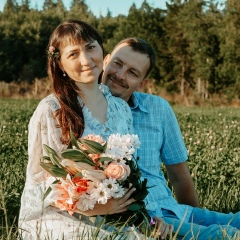У Пушкина в «Цыганах» отрицательный образ городской жизни автор вкладывает в уста Алеко. Алеко — гордый человек, покинувший атмосферу городской суеты и презрительно смотрящий в ту сторону, которую покинул. Земфира (его возлюбленная в таборе) спрашивает Алеко, не тужит ли он по привычной жизни, которую оставил? И слышит в ответ:
О чем жалеть? Когда б ты знала,
Когда бы ты воображала
Неволю душных городов!
Там люди, в кучах за оградой,
Не дышат утренней прохладой,
Ни вешним запахом лугов;
Любви стыдятся, мысли гонят,
Торгуют волею своей,
Главы пред идолами клонят
И просят денег да цепей.
О чем жалеть? Когда б ты знала,
Когда бы ты воображала
Неволю душных городов!
Там люди, в кучах за оградой,
Не дышат утренней прохладой,
Ни вешним запахом лугов;
Любви стыдятся, мысли гонят,
Торгуют волею своей,
Главы пред идолами клонят
И просят денег да цепей.
In Pushkin's "Gypsies" the author puts a negative image of city life into Aleko's lips. Aleko is a proud man who has left the atmosphere of the bustle of the city and looks contemptuously in the direction he left. Zemfira (his beloved in the camp) asks Aleko if he is grieving for the usual life that he left? And he hears in response:
What to regret? If you knew
Whenever you imagine
Bondage of stuffy cities!
There are people in heaps outside the fence,
They do not breathe the morning coolness
Not the spring smell of meadows;
They are ashamed of love, thoughts drive,
They trade by their will,
Heads bow before idols
And they ask for money and chains.
What to regret? If you knew
Whenever you imagine
Bondage of stuffy cities!
There are people in heaps outside the fence,
They do not breathe the morning coolness
Not the spring smell of meadows;
They are ashamed of love, thoughts drive,
They trade by their will,
Heads bow before idols
And they ask for money and chains.

У записи 34 лайков,
10 репостов.
10 репостов.
Эту запись оставил(а) на своей стене Андрей Калякин
















































